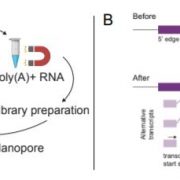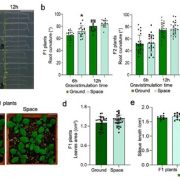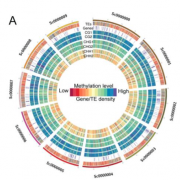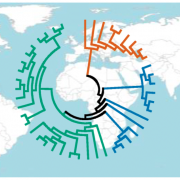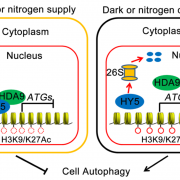Variability of paternally imprinted gene expression linked to hybridization failure in Capsella (Nature Plants)
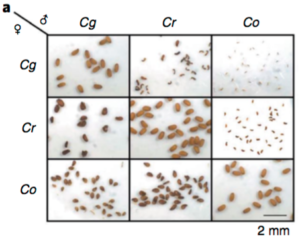 Hybrid seed lethality represents a major reproductive barrier in angiosperms and facilitates species divergence over evolutionary times. Hybrid seed lethality is mainly due to defective endosperm development, leading to embryo arrest. Hybrid seed defects show a parent-of-origin effect, but the underlying molecular mechanisms remain elusive. In this study, Lafon-Placette et al. assessed the contribution of parentally imprinted genes to hybrid seed lethality using interspecific crosses between three species from the genus Capsella. They first evaluated the hybridization barrier between the species and confirmed that the observed seed lethality is due to endosperm failure. Transcriptome analyses revealed that species-specific paternally expressed imprinted genes (PEGs) were deregulated in hybrid seeds, suggesting that dosage imbalance from PEGs could be a major cause of hybridization failure. They further show that species-specific PEGs are preferentially found in the vicinity of transposable elements and exhibit higher DNA methylation, suggesting that inter-species variation in transposable elements contributed to imprinted genes divergence between Capsella species. Together, this study reveals a major contribution of imprinted genes to hybridization barriers, fuelled by polymorphisms in transposable elements, and provides a framework for prediction of hybridization success. (Summary by Matthias Benoit) Nat. Plants 10.1038/s41477-018-0161-6
Hybrid seed lethality represents a major reproductive barrier in angiosperms and facilitates species divergence over evolutionary times. Hybrid seed lethality is mainly due to defective endosperm development, leading to embryo arrest. Hybrid seed defects show a parent-of-origin effect, but the underlying molecular mechanisms remain elusive. In this study, Lafon-Placette et al. assessed the contribution of parentally imprinted genes to hybrid seed lethality using interspecific crosses between three species from the genus Capsella. They first evaluated the hybridization barrier between the species and confirmed that the observed seed lethality is due to endosperm failure. Transcriptome analyses revealed that species-specific paternally expressed imprinted genes (PEGs) were deregulated in hybrid seeds, suggesting that dosage imbalance from PEGs could be a major cause of hybridization failure. They further show that species-specific PEGs are preferentially found in the vicinity of transposable elements and exhibit higher DNA methylation, suggesting that inter-species variation in transposable elements contributed to imprinted genes divergence between Capsella species. Together, this study reveals a major contribution of imprinted genes to hybridization barriers, fuelled by polymorphisms in transposable elements, and provides a framework for prediction of hybridization success. (Summary by Matthias Benoit) Nat. Plants 10.1038/s41477-018-0161-6


